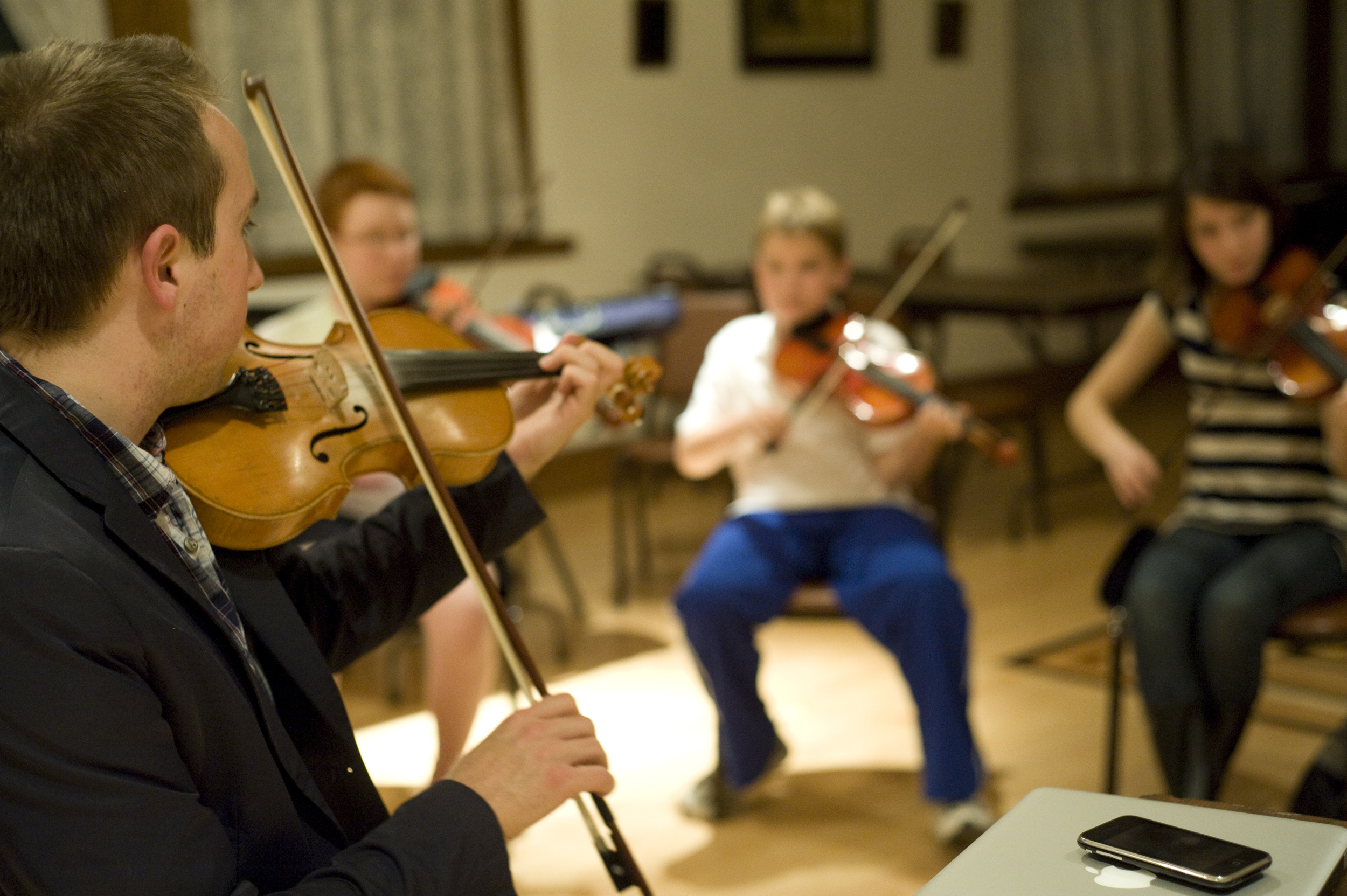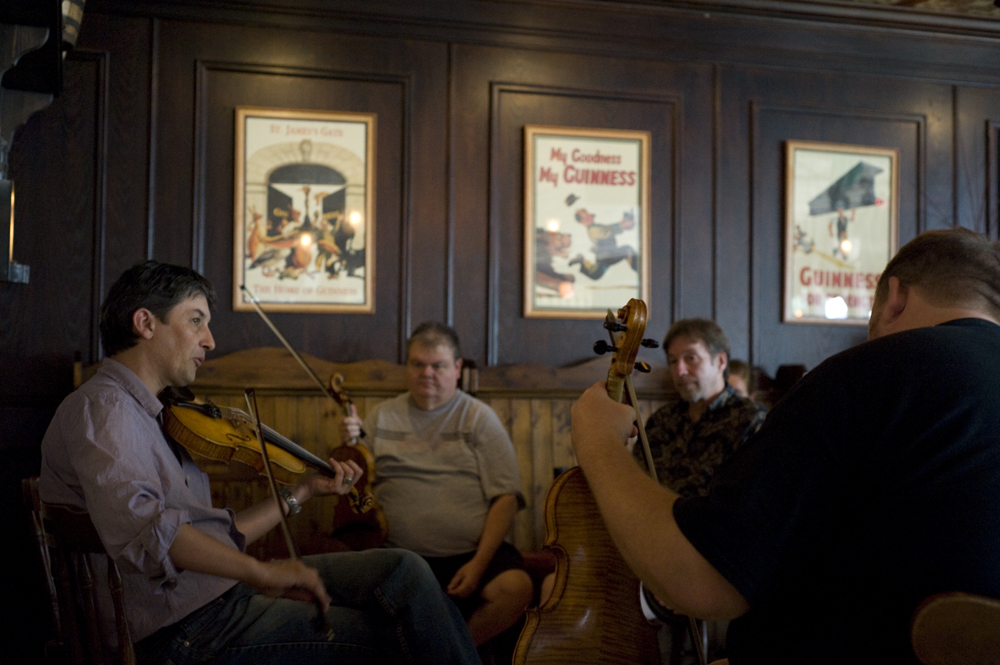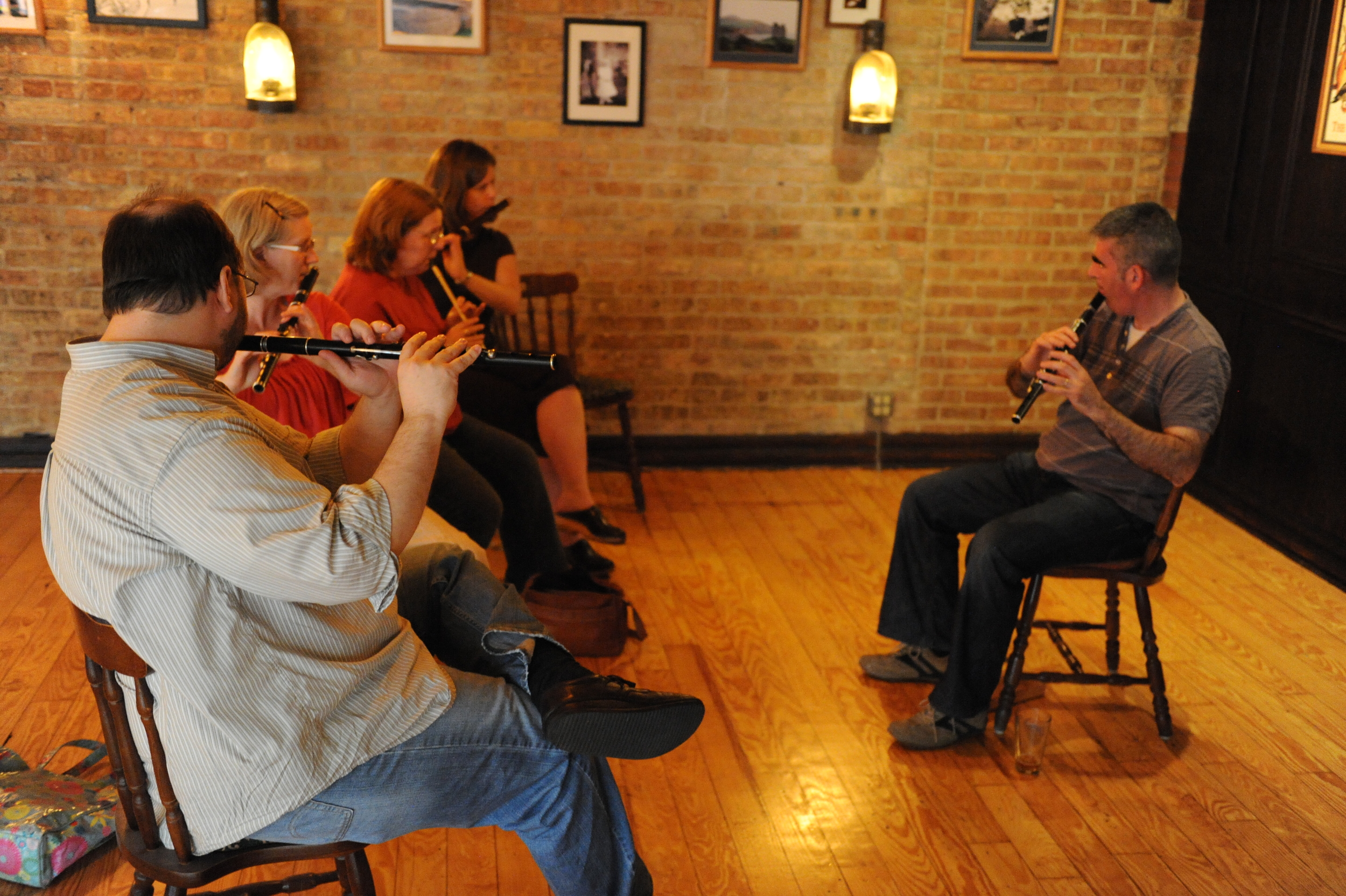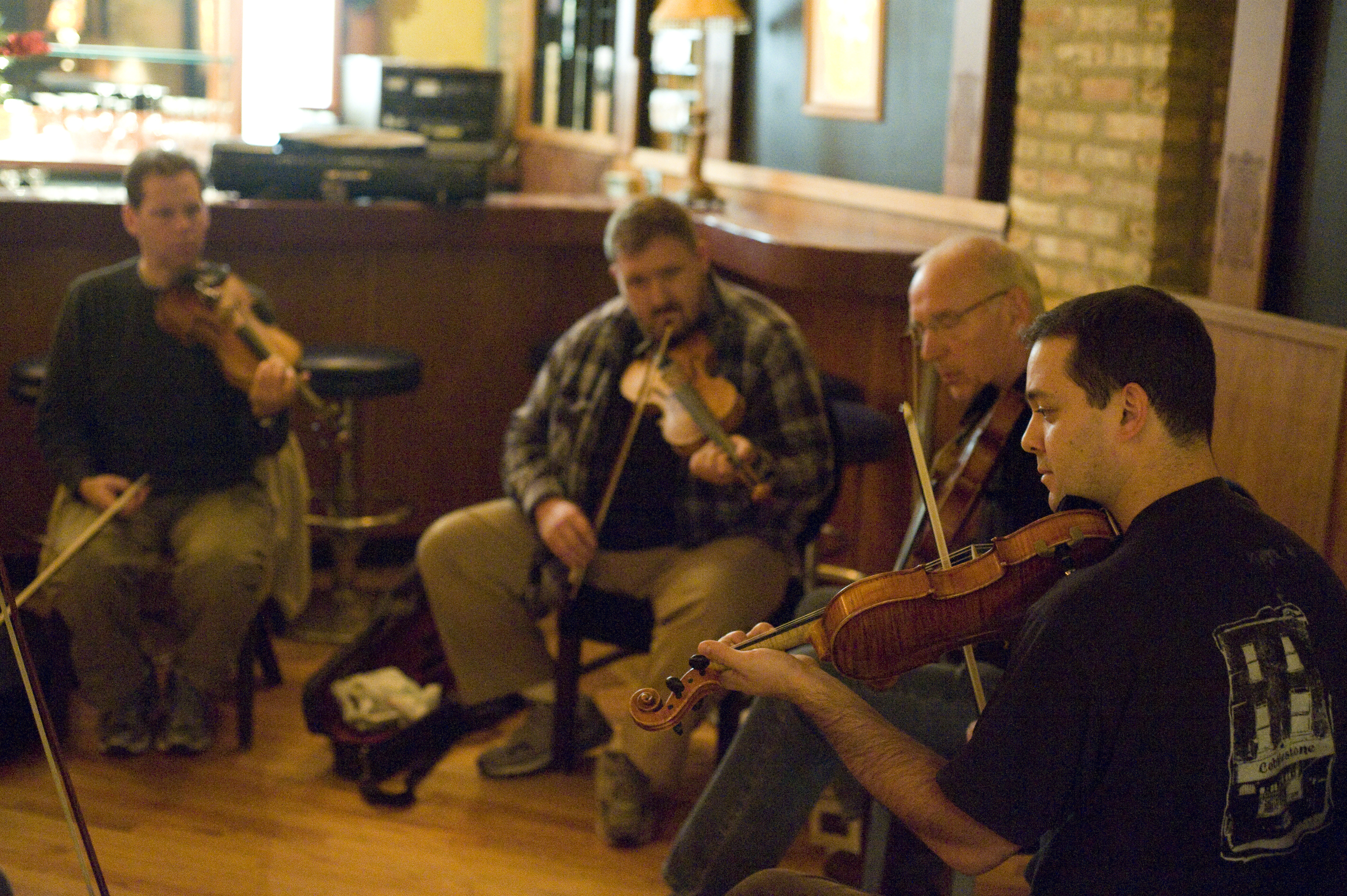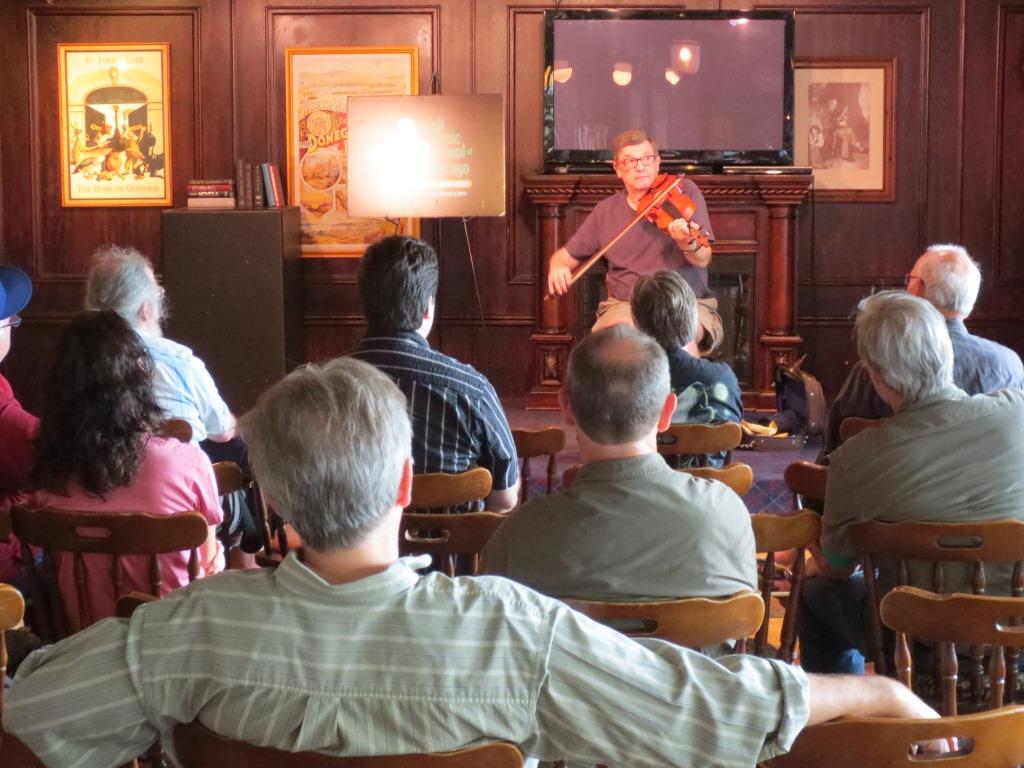Online via Zoom
$25 per workshop or $45 for both / all times listed in CHICAGO TIME ZONE
-registrants will get access to the recording of the workshop(s) for continued learning-
Matt Cranitch grew up in a musical family in County Cork in the south of Ireland. From a young age, he displayed a particular aptitude and talent for music, and went on to establish a significant reputation as a traditional fiddle-player. He has won All-Ireland Fleadh Cheoil titles, and also The Fiddler of Dooney and Oireachtas Crotty Cup. He has performed in many parts of the world, at concerts and festivals, as well as on radio and television.
He has been involved in various performing groups, including Na Filí and Any Old Time, with each of whom he made a number of recordings, as well as Sliabh Notes, who recorded three albums: Sliabh Notes, Gleanntán and Along Blackwater’s Banks. Among his other recordings are Éistigh Seal which consists entirely of slow airs, as well as The Living Stream and Rolling On, two highly-acclaimed recordings with Jackie Daly, with whom he performs regularly.
He is author of The Irish Fiddle Book, first published in 1988, and now in its fourth edition. This is widely considered to be the definitive work on the topic, and has been deemed by Folk Roots to be “a must for every serious student of Irish fiddling.” He issued Irish Fiddle Tunes in 2013, and has also contributed to other books on Irish traditional music. In 2022, he compiled and edited The Jackie Daly Collection of original Irish tunes.
He has presented many master-classes and workshops on various aspects of Irish traditional music, particularly fiddle-playing, and has read papers at a range of academic conferences. An authority on the Sliabh Luachra fiddle style, he was awarded a ‘Government of Ireland Senior Research Scholarship’ in 2002 for his work on the music of this region. He received a PhD from the University of Limerick in 2006 for his study, ‘Pádraig O’Keeffe and The Sliabh Luachra Fiddle Tradition’.
In parallel with his performance career, he has led a very active life in acadaemia. Having graduated from University College Cork with degrees in electrical engineering and in music, he lectured for quite a number of years at Cork Institute of Technology, where his subject areas and interests embraced the domains of electronic engineering and music technology. He has also presented guest lectures in Irish traditional music at a number of other educational institutions including University of Limerick, University of Newcastle and Boston College, as well as at many summer schools and festivals. He has taught a number of courses in Irish traditional music over various years at University College Cork.
He was a long-time consultant for the Geantraí series of traditional music programmes on TG4 (Irish-language TV), as well as for the TG4 Gradam Ceoil music awards in the period 2000–2007. He was an adviser for the Arts Council of Ireland Deis scheme for the traditional arts, 2005–2013, and also a board member of the Irish Traditional Music Archive, 2007–2010. He was presented with the University College Cork Hall of Fame Award in 2003 for his contribution to Irish traditional music. And in recognition of his dedication to the Sliabh Luachra tradition, he received the M.J. Quill Irish Cultural Center (New York) Award in 2014, and the Patrick O’Keeffe Traditional Music Festival (Castleisland) Award in 2017.
“An exceptional musician and an authority on Irish fiddle-playing, Matt Cranitch has been a major force in Irish music since the early 1970s” (The Rough Guide to Irish Music).
11:00am - 12:15pm (CHICAGO TIME)
Painting with the Bow
(for intermediate+ fiddle players / open to all levels/instruments for observation)
There is no doubt that bowing has a significant effect on the sound produced by the fiddle. It also imparts to the music the characteristic rhythm and articulation appropriate to the type of tune being played, for example jig, reel, slide, polka, which is so vital in the case of dance music.
The role of the bow is all the more remarkable when it is realised that the actual contact area between the bow-hairs and the fiddle-string is so small. Yet all the expressive qualities of the bowing-hand, in terms both of its sensitivity and power, are applied to the fiddle through the bow, by means of this tiny fragile link. At this point of contact and intersection, so much depends on so little. This is not at all to say that the left hand, the fingering hand, has little to contribute – far from it!
It may truly be said that the bowing contributes so much more than merely ‘playing the notes’, and thereby making the sound: it plays an essential role in giving its full meaning to the music. It is with the bow that we get to the heart of the music. As Batt Scanlon said in his book, The Violin Made Easy and Attractive (published in San Francisco 1923), “The bow may be termed the soul of the instrument to which it is applied.”
This master class will consider aspects of bowing as it relates to a number of the various different tune-types occurring in the realm of Irish Traditional Music.
12:30pm - 1:45pm (CHICAGO TIME)
Remembering Denis Murphy (1910–1974) For All
(for intermediate+ melody instrument players / open to all levels/instruments for observation)
It is fifty years since the untimely death in April 1974 of Denis Murphy, the iconic Sliabh Luachra fiddler, who left an indelible mark on the course of Irish traditional music. Various events to commemorate his memory have taken place in Ireland, and more will follow throughout the year. This masterclass will consider his legacy, with a number of his recorded tunes being featured in detail.
Denis, who learned the fiddle from the legendary Pádraig O’Keeffe (1887–1963), emigrated to New York in 1949. Between then and 1965, he spent three different periods of time living there, in all a total of about ten years. He met and played with some of the great Sligo-style fiddlers in New York at the time, people like Paddy Killoran, Andy McGann, and Lad O’Beirne. In the early 1950s, he made a number of 78 RPM records there, and, as was the norm for the time, they include piano accompaniment. He recorded some 78 RPM tracks for Gael Linn in Dublin about 1959 – this time his playing was unaccompanied.
On returning to Ireland for good in 1965, Denis settled in Lisheen, near the old family home. He played a great deal of music in the Sliabh Luachra area, and also travelled to fleadhanna cheoil throughout Ireland. His regular playing partner and longtime friend was the accordion-player, Johnny O’Leary (1923–2004) who lived a few miles away. They played together for many years at the Sunday night session in Dan O’Connell’s Pub in Knocknagree. It was after one of these nights that Denis died at home, on 7th April 1974.
Denis Murphy is to be heard on two of the classic recordings of unaccompanied traditional fiddling: Kerry Fiddles, with his sister Julia Clifford (1914–1997) and his teacher Pádraig O’Keeffe (released in 1977 with recordings from 1952); and The Star Above the Garter, with Julia (issued in 1969).
Thank you to the support of the emigrant support programme which MAkes THESE WORKSHOPS POSSIBLE.
The Irish Music School of Chicago strives to bring the best of traditional Irish music to students and the community from both local talent as well as visiting musicians. As such, we collaborate regularly with expert musicians to visit our School and conduct master workshops on a variety of instruments and topics. Workshops may be instrument-specific or may cover broad topics such as, "How to Accompany Irish Dance Tunes with John Doyle" or "Tunes of the Dingle Peninsula with Brendan Begley".
